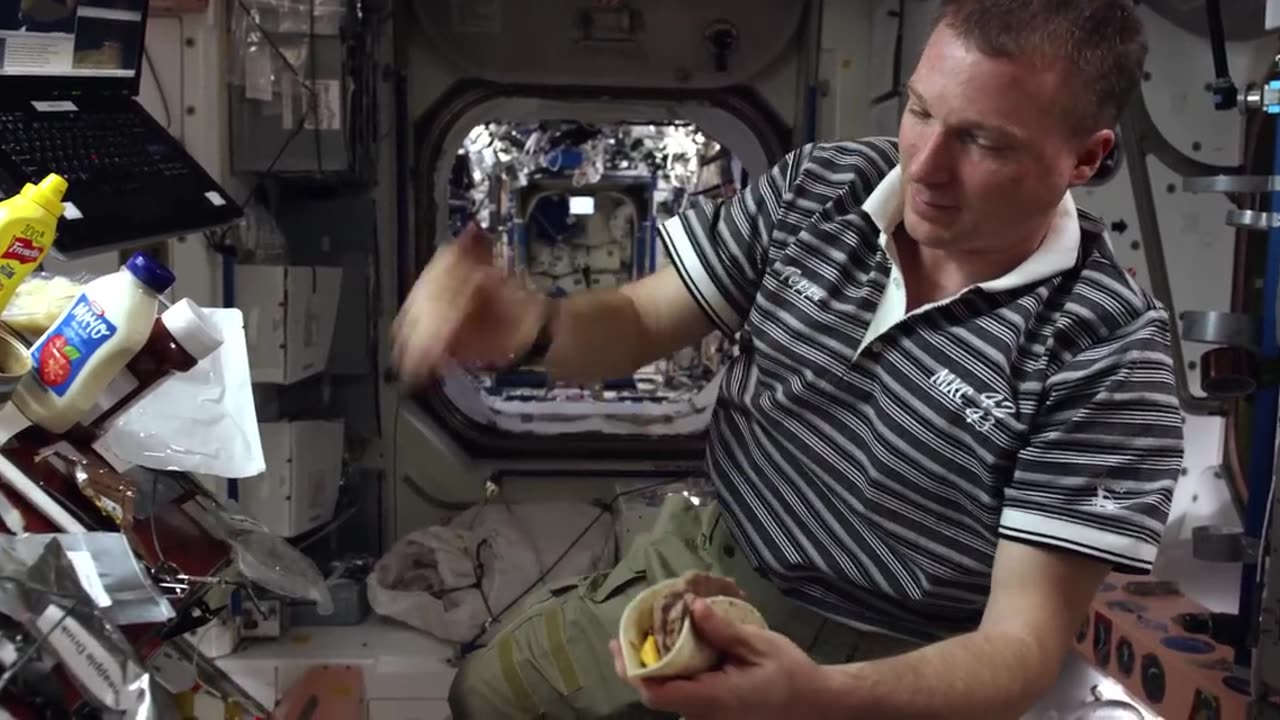Premium Only Content

INTERNATIONAL SPACE STATION NASA
The International Space Station (ISS) is a large, habitable spacecraft that orbits Earth in low Earth orbit. It serves as a collaborative effort among multiple space agencies and countries to conduct scientific research, technology development, and international cooperation in space exploration. Here's a brief overview of the ISS:
Construction and Structure:
The ISS is composed of multiple interconnected modules, which include living quarters, laboratories, and various research facilities. It has been assembled in space over several years, starting in 1998, through a series of missions conducted by different space agencies, including NASA (United States), Roscosmos (Russia), ESA (European Space Agency), JAXA (Japan Aerospace Exploration Agency), and CSA (Canadian Space Agency).
Purpose and Objectives:
The primary purpose of the ISS is to provide a platform for scientific research and technological development in a microgravity environment. Researchers from around the world use the ISS to conduct experiments in various fields, including astronomy, biology, physics, medicine, materials science, and Earth sciences. The results of these experiments contribute to our understanding of fundamental scientific principles and have practical applications on Earth.
International Cooperation:
The ISS is a shining example of international collaboration in space exploration. It brings together experts, resources, and technology from multiple countries to work toward common goals. This cooperation not only advances scientific knowledge but also fosters diplomacy and peaceful relations among nations.
Crew and Operations:
The ISS is typically inhabited by a rotating crew of astronauts and cosmonauts from various countries. These crew members live and work on the station for extended periods, conducting experiments, maintaining the station's systems, and performing spacewalks to repair and upgrade equipment. The station also serves as a training ground for astronauts preparing for future deep-space missions, such as those aimed at Mars.
Benefits and Discoveries:
The research conducted on the ISS has led to numerous discoveries and advancements in various fields. These include insights into the effects of long-duration spaceflight on the human body, the development of new materials with unique properties, advancements in Earth observation and environmental monitoring, and breakthroughs in medicine and healthcare.
Future of the ISS:
As of my last knowledge update in September 2021, there were discussions about the future of the ISS and potential plans for its continuation or replacement. These plans may have evolved since then. Some proposals include transitioning from the ISS to newer space habitats or private space stations operated by commercial entities.
Remember that developments in space exploration can change rapidly, so I recommend checking with official space agency sources for the most up-to-date information on the ISS and its current status.
-
 DVR
DVR
Vigilant News Network
2 hours agoUNHINGED: Dems Say That Elon Needs to ‘Go Back to AFRICA?’ | The Daily Dose
20.9K3 -
 1:13:13
1:13:13
Sean Unpaved
2 hours ago $3.10 earnedQB Carousel
19.7K1 -
 1:04:28
1:04:28
Crypto Power Hour
20 hours ago $3.33 earnedThe Crypto Power Hour - ‘In Crypto We Trust’
22K1 -
 UPCOMING
UPCOMING
CatfishedOnline
1 hour agoWoman Love Bombed by Salt-and-Pepper Scammer
17 -
 14:51
14:51
Misha Petrov
1 hour agoDemocrats HUMILIATED at Trump’s Congressional Address! Breaking Down the MUST-SEE Moments
3722 -
 1:39:05
1:39:05
The Quartering
4 hours agoTrump's Epic Speech, Democrat & MSM Meltdown, Zelensky Flip Flops AGAIN & A T*ans CULT Unmasked
76.1K45 -
 1:28:13
1:28:13
Tucker Carlson
4 hours agoJonathan Roumie: The Weight of Playing Jesus in the Chosen, & Why You Should Observe Lent
103K54 -
 LIVE
LIVE
Film Threat
19 hours agoDAREDEVIL: BORN AGAIN ARRIVES! | Hollywood on the Rocks
168 watching -
 LIVE
LIVE
The HotSeat
1 hour agoIs The American Family Going Extinct??
842 watching -
 1:04:31
1:04:31
Ben Shapiro
5 hours agoEp. 2151 - Trump’s HOME RUN State of the Union!
73.1K49